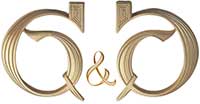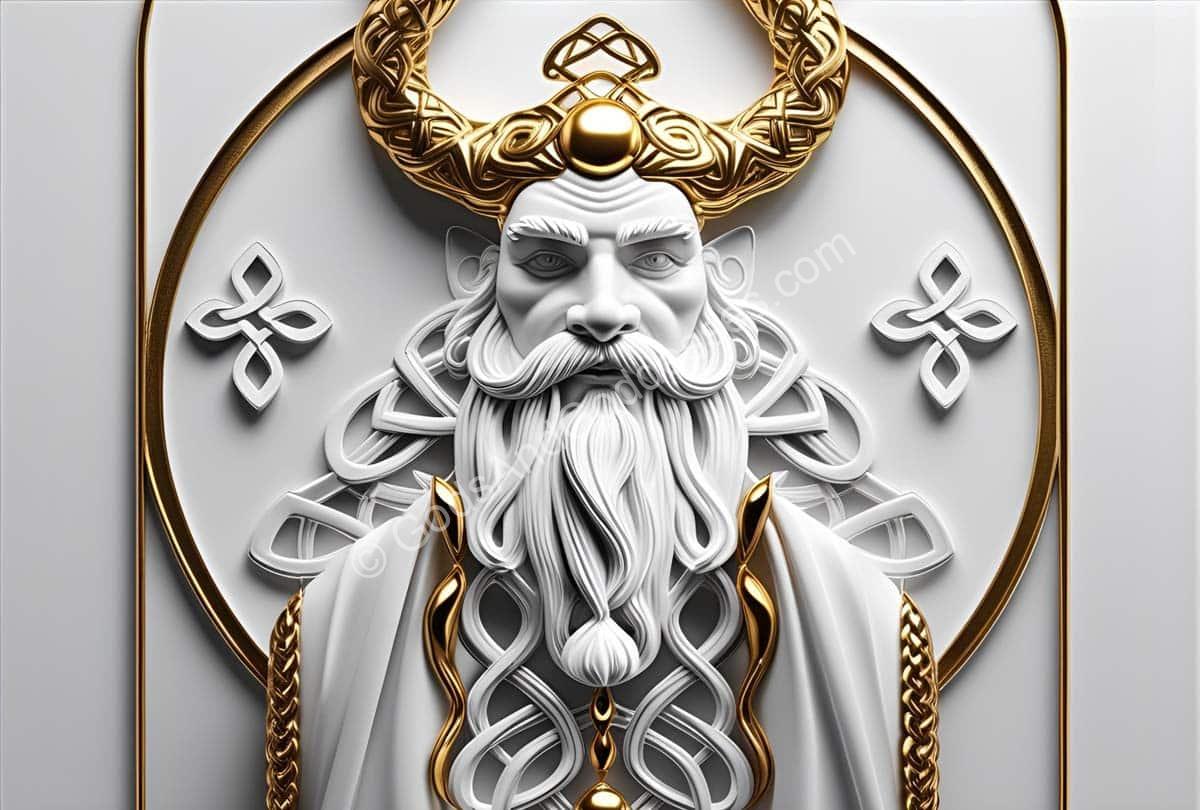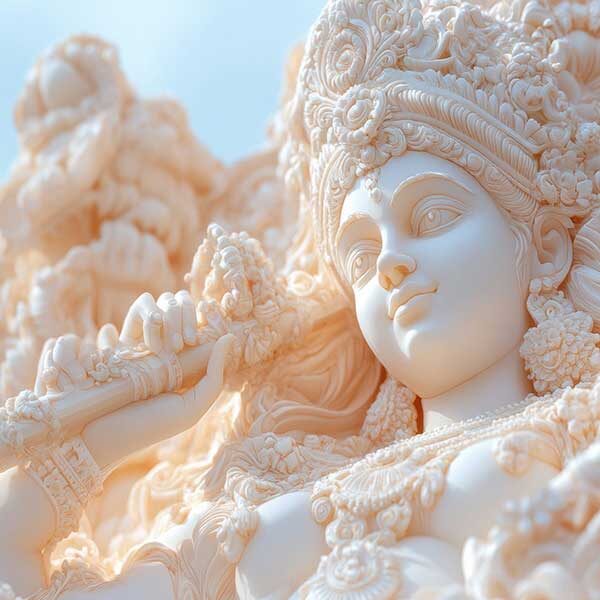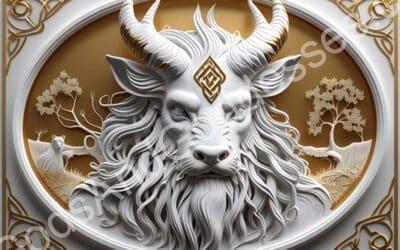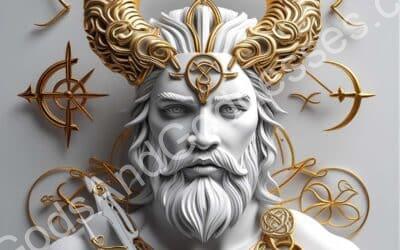Dagda Celtic Father God
Known as the “Good God,” the Dagda was a father figure, warrior, and master of wisdom, fertility, and abundance. Among the Celtic Gods, none looms larger—literally or figuratively.
At GodsAndGoddesses.com, we explore how Gods, Goddesses, and Mythology shape culture and spirituality. The Dagda stands as the great provider whose club, cauldron, and harp reveal his power to sustain life, bring balance, and guide destiny.
“The Dagda is the great provider—lord of life, death, and plenty, whose gifts sustain gods and mortals alike.”
Key Takeaways: The Dagda, Celtic Father God
-
The “Good God” – His name means good at everything, not morally “good,” but masterful in all skills.
-
Symbols of Power – His club kills and revives, his cauldron never empties, and his harp controls the seasons.
-
Fertility and Plenty – Tied to agriculture, abundance, and the prosperity of the land.
-
Warrior and Leader – Chief of the Tuatha Dé Danann, protector of his people.
-
Lover of the Morrígan – Their union at Samhain symbolizes renewal and sovereignty.
-
Modern Worship – Honored in Celtic and neopagan practice as a father god of plenty, wisdom, and protection.
Who Is the Dagda in Celtic Mythology?
The Dagda (pronounced DAHG-dah) was revered as one of the chief gods of the Tuatha Dé Danann, the divine tribe of Ireland.
He was seen as:
-
A father figure and leader of the gods
-
A fertility god tied to earth and agriculture
-
A wise counselor and judge
-
A warrior who defended his people
Depicted as giant-like, both comical and powerful, he embodied the fullness of life—strength, appetite, and humor.
The Dagda’s Powers and Symbols
-
The Club – One end killed, the other restored life.
-
The Cauldron of Plenty – A vessel that never ran empty, symbol of abundance.
-
The Harp of Seasons – A magical harp that could turn the seasons and control emotions.
Together, these objects marked him as a god of balance: life and death, joy and sorrow, order and chaos.
Myths of the Dagda
In the Second Battle of Mag Tuired, the Dagda was mocked by enemies who tried to drown him in porridge, but he endured and ensured the Tuatha’s victory.
He was also famed for his union with the Morrígan at Samhain, symbolizing fertility, renewal, and the sovereignty of the land.
The Dagda as the “Good God”
The Dagda’s “goodness” was not about morality but mastery—he excelled at everything. His stories show him as:
-
Fertility and Plenty – Ensuring harvests and abundance.
-
Strength and Protection – Fierce defender of his people.
-
Wisdom and Humor – Judge, counselor, and trickster-like figure.
He was approachable, earthy, and beloved among the Celtic gods.
Worship of the Dagda
Though specific rituals are lost, the Dagda was likely honored in fertility and harvest rites, with offerings of food, ale, or feasts.
In modern neopaganism, he is celebrated at Samhain and harvest festivals, invoked as a god of renewal, prosperity, and cosmic balance.
See also: God Worship and Rituals.
The Dagda in Modern Culture
The Dagda’s archetypes—provider, warrior, wise father—continue to inspire. He is invoked in Celtic spirituality, literature, and art as a force of resilience and renewal.
External resource: Mythopedia – The Dagda
Frequently Asked Questions
What does “Dagda” mean?
It means “Good God,” referring to his mastery of many powers.
What are the Dagda’s symbols?
His club, cauldron of plenty, and magical harp.
Who was the Dagda’s consort?
He is often paired with the Morrigan, their union symbolizing fertility and fate.
Conclusion
The Dagda stands as a central figure of Celtic mythology: a father, a warrior, a trickster, and a god of wisdom and abundance. With his cauldron, club, and harp, he embodies the fullness of life—its laughter, its battles, and its renewal.
Explore more:
“To honor the Dagda is to honor the feast, the harvest, the fight, and the wisdom that sustains them all.”
- Odin God Story - August 24, 2025
- The Story of Ra: Egyptian Sun God and Creator - August 24, 2025
- Kraken: Mythological Sea Monster of the Deep - August 24, 2025
